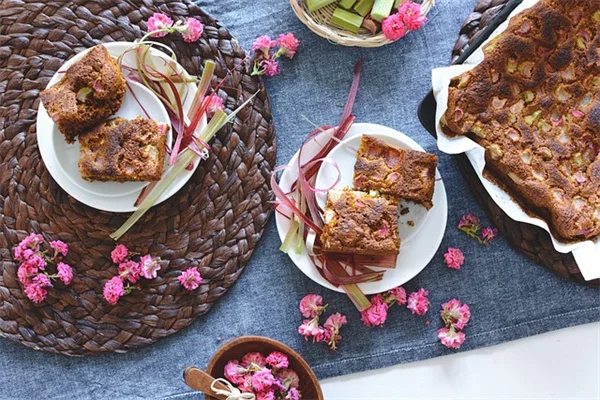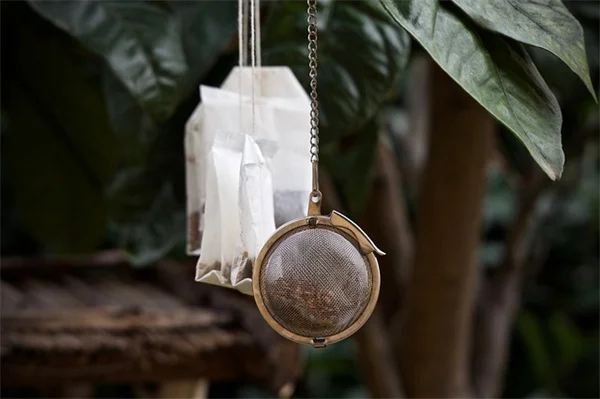Is one alcoholic drink per day safe? The answer might surprise you: even moderate drinking carries health risks. A new federal report shows that your daily glass of wine or beer could increase your chances of liver damage and several cancers. We're talking about breast cancer, esophageal cancer, and colorectal cancer - scary stuff!Here's what you need to know: The U.S. Surgeon General recently updated alcohol guidelines, comparing the risks to those of smoking. That's right - your evening cocktail might be more dangerous than you thought. But don't panic just yet! The good news is that cutting back to just 2-3 drinks per week significantly lowers these risks. I'll walk you through exactly what the latest research says and how you can make smarter choices about alcohol.
E.g. :FDA Approves First-Ever Chikungunya Vaccine: What Travelers Need to Know
Advertisement
- 1、Let's Talk About Alcohol and Your Health
- 2、Breaking Down the Risks
- 3、The Ugly Truth About Binge Drinking
- 4、Making Smart Choices About Alcohol
- 5、Your Personal Alcohol Strategy
- 6、Beyond the Glass - Understanding Alcohol's Full Impact
- 7、Alternative Ways to Unwind
- 8、Alcohol and Your Brain - What Happens Up There
- 9、Making Changes That Stick
- 10、FAQs
Let's Talk About Alcohol and Your Health
What's the Latest Research Saying?
Hold onto your cocktail glasses, folks - the government just dropped some sobering news. That daily glass of wine or beer you enjoy? It might be riskier than we thought. A fresh report from health experts shows that even one drink per day could increase your chances of liver problems and several types of cancer.
Now, before you panic and pour your merlot down the drain, let's break this down. The report comes from smart folks at the Department of Health and Human Services, and it's got doctors talking. Dr. Vivek Murthy, our nation's top doc (the Surgeon General), recently updated alcohol guidelines too. He's so concerned that he wants alcohol bottles to come with cancer warnings - just like cigarette packs!
Why All the Fuss About Moderate Drinking?
Here's the million-dollar question: Is any amount of alcohol actually safe? Great question! The CDC currently says guys can have two drinks daily, and ladies should stick to one. But many experts think these rules need updating.
Let me give you some food (or drink?) for thought. Dr. Aashish Didwania from Northwestern University told NPR that our current guidelines might be outdated. And get this - a 2024 study found that moderate drinkers actually face higher cancer risks. But wait - another group of scientists say moderate drinking might help your heart! Confusing, right?
| Drinking Pattern | Potential Benefits | Potential Risks |
|---|---|---|
| 1 drink/day | Possible heart benefits | Increased cancer risk |
| 2-3 drinks/week | Lower risk than daily drinking | Small cumulative harm |
| Binge drinking | None | Alcohol poisoning, accidents, long-term damage |
Breaking Down the Risks
 Photos provided by pixabay
Photos provided by pixabay
Your Daily Drink - Friend or Foe?
Kristen Kirkpatrick, a dietitian at Cleveland Clinic, gave me some eye-opening info. That "one drink per day" adds up to seven drinks weekly - enough to potentially raise your blood pressure, shrink your brain (yikes!), and increase heart disease risk. And here's the kicker - most of us pour way more than standard drink sizes!
Quick reality check: A standard drink is 5oz of wine (about the size of a yogurt cup), 12oz of beer (a regular can), or 1.5oz of liquor (a shot glass). Be honest - when was the last time you measured your margarita?
What About Just a Few Drinks Weekly?
Here's some good news! Cutting back to 2-3 drinks weekly is much better than daily drinking. Dr. Harb (a cancer specialist) told me that while there's still some risk, it's way lower. Dr. Chen suggests keeping it under two drinks weekly for the safest approach.
But let's be real - is any amount truly safe? Dr. Humphreys from Stanford says a couple drinks weekly carries "very little risk." Though he adds that alcohol is still a drug we should respect. Think of it like sun exposure - a little might be okay, but too much causes damage over time.
The Ugly Truth About Binge Drinking
What Exactly Counts as Binge Drinking?
Picture this: It's Friday night, and you knock back five beers in two hours. Congratulations - you've just binged! For women, it's four drinks in the same timeframe. This isn't just college behavior - many adults do this regularly without realizing the risks.
Why does this matter? Because binge drinking can lead to immediate dangers like alcohol poisoning or car accidents, plus long-term problems like liver disease. A 2024 study linked excessive drinking to six different cancers. Not exactly the kind of six-pack you want, right?
 Photos provided by pixabay
Photos provided by pixabay
Your Daily Drink - Friend or Foe?
Here's something interesting - having one drink daily might be better than saving all your drinks for one wild night. Multiple studies show binge drinking increases mortality risk, even for otherwise moderate drinkers. It's like eating all your veggies for the week in one sitting - not how your body works best!
Dr. Chen put it simply: "It's better to have one drink per day than several at once." Dr. Harb adds that binge drinking affects both your immediate safety and long-term heart/brain health. So maybe save that third margarita for another night?
Making Smart Choices About Alcohol
Who Should Avoid Alcohol Completely?
Some people just shouldn't drink - period. This includes pregnant women, people on certain medications, and those with conditions like liver disease or diabetes. The National Institute on Alcohol Abuse and Alcoholism has a clear list of who should steer clear.
But what about the rest of us? That's where things get tricky. Some studies suggest red wine with a Mediterranean diet might help heart health. Others show moderate drinkers sometimes have better health outcomes than teetotalers - but this might be because they exercise more and eat better overall.
So What's the Bottom Line?
After talking to all these experts, here's my takeaway: less is more when it comes to alcohol. Dr. Chen advises drinking as little as possible - preferably not at all. Kirkpatrick says cutting back is one of the best health moves you can make.
Think about it this way - would you take a daily drug that might cause cancer but could help your heart? That's essentially the alcohol question. Dr. Harb suggests focusing on healthy eating, exercise, and stress management instead - all proven winners without the risks.
Your Personal Alcohol Strategy
 Photos provided by pixabay
Photos provided by pixabay
Your Daily Drink - Friend or Foe?
If you do choose to drink, here are some pro tips: Stick to standard drink sizes, space out your drinks, and never binge. Pay attention to how alcohol affects your sleep, weight, and mood - these are important clues about whether it's helping or harming you.
Remember that alcohol affects everyone differently based on your genes, health history, and lifestyle. What's "moderate" for your neighbor might be too much for you. Listen to your body - it's usually pretty honest!
When to Seek Help
Can't imagine cutting back? That might be a red flag. Dr. Humphreys suggests being honest about alcohol's role in your life. If you need help reducing or quitting, don't hesitate to ask - there's no shame in putting your health first.
At the end of the day, alcohol is a personal choice. But now you've got the latest facts to make an informed decision. Whether you choose to toast occasionally or skip the booze entirely, here's to your health!
Beyond the Glass - Understanding Alcohol's Full Impact
The Social Side of Drinking We Rarely Discuss
Ever notice how alcohol sneaks into nearly every celebration? From champagne toasts at weddings to beer at baseball games, drinking's woven into our social fabric. But here's something we don't talk about enough - how alcohol affects our relationships and mental health beyond just physical risks.
Take dating apps for example - how many profiles mention "wine lover" or "craft beer enthusiast"? We've romanticized alcohol so much that refusing a drink often requires explanation. That coworker happy hour where everyone's bonding over margaritas? The non-drinker might feel left out, even if no one means to exclude them. This social pressure can make cutting back harder than it should be.
Alcohol's Hidden Costs - More Than Just Your Health
Let's talk dollars and cents for a minute. That $15 cocktail adds up faster than you think! The average moderate drinker spends about $1,000 annually on alcohol - money that could fund a nice vacation or pad your savings account. And we're not even counting Uber rides, late-night pizza, or next-day productivity losses.
Here's a breakdown of what alcohol really costs:
| Expense Category | Moderate Drinker | Occasional Drinker |
|---|---|---|
| Annual Alcohol Cost | $1,200 | $300 |
| Related Expenses | $500 | $100 |
| Potential Health Savings | $0 | $400 |
But wait - is cutting out alcohol completely the only solution? Not necessarily! Many people find success with "mindful drinking" - being fully present and intentional about each drink rather than drinking out of habit.
Alternative Ways to Unwind
Finding Relaxation Without the Rosé
When stress hits, many of us reach for a drink without thinking. But have you tried these alcohol-free alternatives? A warm bath with Epsom salts can relax muscles just as well as wine relaxes your mind. Herbal teas like chamomile or valerian root offer calming properties without the next-day fog.
Exercise releases endorphins that can give you that "happy hour" feeling naturally. Even a 20-minute walk can reset your mood. And get this - laughter triggers the same dopamine release as alcohol! Maybe instead of meeting friends at a bar, you could try a comedy club or game night.
The Mocktail Revolution - Delicious Without the Buzz
Bars and restaurants are catching on to the sober-curious movement with creative non-alcoholic options. We're talking craft shrubs (vinegar-based drinks), alcohol-free spirits that mimic the complexity of gin or whiskey, and elaborate mocktails that feel just as special as their boozy counterparts.
Some favorites to try:- Sparkling water with muddled berries and fresh herbs- Kombucha cocktails (the fermentation gives complexity without alcohol)- Seedlip garden drinks (herbal non-alcoholic spirits)- Cold-brew coffee tonics
The best part? You wake up feeling refreshed instead of fuzzy-headed. And no embarrassing texts to explain away!
Alcohol and Your Brain - What Happens Up There
The Sleep Saboteur You Didn't See Coming
That nightcap might help you doze off, but here's the twist - alcohol actually ruins your sleep quality. It blocks REM sleep, the most restorative phase where dreams happen and memories consolidate. Even moderate drinking can leave you feeling exhausted despite clocking eight hours.
Think about your last "drunk sleep" - did you wake up at 3am thirsty and restless? That's your body processing the alcohol instead of resting properly. Over time, this sleep disruption contributes to anxiety, depression, and cognitive decline. Not exactly the relaxation we were hoping for!
Anxiety's Best Friend (That Pretends Not to Be)
Here's something ironic - while alcohol temporarily eases social anxiety, it actually makes anxiety worse long-term. Alcohol messes with your GABA receptors (the brain's "calm down" chemicals), creating a rebound effect as it leaves your system.
Ever had "hangxiety" - that awful next-day emotional hangover? That's your brain chemistry out of whack. Regular drinking can actually retrain your brain to feel more anxious overall. The solution isn't another drink - it's giving your nervous system time to rebalance naturally.
Making Changes That Stick
Small Shifts With Big Impact
You don't need to go cold turkey to see benefits. Try these easy switches:- Alternate alcoholic drinks with water or soda water- Use smaller glasses (a champagne flute instead of a wine glass)- Delay your first drink by 30 minutes at social events- Implement "dry days" each week
Notice how you feel on days without alcohol - more energy? Better skin? More patience with your kids? These positive changes can motivate you more than any health warning!
When Your Social Circle Doesn't Get It
Changing your drinking habits can strain friendships, especially if your social life revolves around bars. Here's how to handle it:- Have a go-to response ready ("I'm doing a health challenge")- Suggest alternative meetups (coffee, hiking, museums)- Find sober communities through apps or meetups- Remember real friends will support your health goals
At the end of the day, it's your body and your choice. Whether you decide to cut back, quit completely, or keep enjoying moderately, being informed helps you make the best decision for your unique situation. Cheers to that!
E.g. :Understanding Alcohol Drinking Patterns | National Institute on ...
FAQs
Q: How much alcohol is actually safe to drink?
A: Let's be real - no amount of alcohol is completely risk-free, according to the latest research. But if you're going to drink, experts suggest keeping it under two drinks per week for the lowest risk. That's way less than the old guidelines of one drink daily for women and two for men. Dr. Chen, a cardiologist I spoke with, put it bluntly: "I'd advise people to drink as little as possible and preferably not at all." The science is clear - the less you drink, the lower your risks of cancer, heart disease, and other health issues.
Q: Why is one drink per day suddenly considered risky?
A: Great question! Here's the deal: new studies have found stronger links between alcohol and cancer than we previously understood. That daily drink adds up to seven per week - enough to potentially damage your liver, shrink your brain (yes, really!), and raise blood pressure. What changed? Better research methods and longer-term studies are showing us that even moderate drinking has cumulative effects. Think of it like sun exposure - a little might seem fine, but over time, the damage adds up.
Q: Is red wine still good for your heart?
A: This is where it gets interesting. Some studies do show that red wine in moderation might have heart benefits, especially when paired with a Mediterranean diet. But here's the catch: those benefits might actually come from the healthy lifestyle of moderate drinkers, not the alcohol itself. As dietitian Kristen Kirkpatrick told me, "People who drink moderately tend to exercise more and eat better." The bottom line? You can get heart-healthy benefits from foods like grapes and nuts without the cancer risks of alcohol.
Q: What counts as binge drinking and why is it so dangerous?
A: Binge drinking is when you have 5+ drinks (for men) or 4+ drinks (for women) in about two hours - basically, a typical Friday night out for many adults. Why's this so bad? Because your body can't process that much alcohol safely. Immediate risks include alcohol poisoning and accidents, while long-term effects include liver disease and six different types of cancer. Multiple studies show that saving all your drinks for one night is worse than spreading them out. As Dr. Harb explained, "It's like eating all your veggies for the week in one sitting - not how your body works best!"
Q: Who should avoid alcohol completely?
A: Some people should steer clear of alcohol entirely, including pregnant women, those taking certain medications, and people with conditions like liver disease or diabetes. Even if you're healthy, you might want to reconsider that nightly drink. As Dr. Humphreys from Stanford told me, "Alcohol is a drug with risks that we need to take seriously." The good news? There are plenty of ways to relax and socialize without alcohol. Try mocktails, kombucha, or just sparkling water with lime - your liver will thank you!


